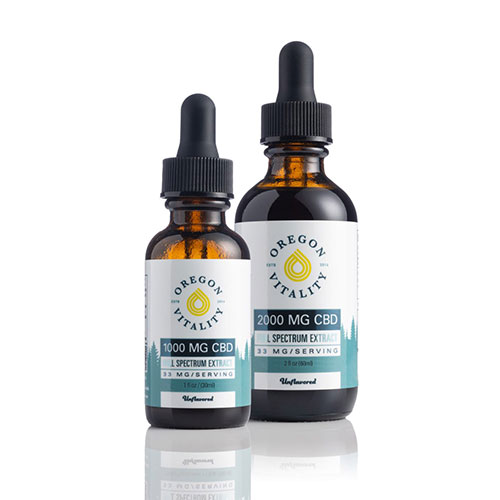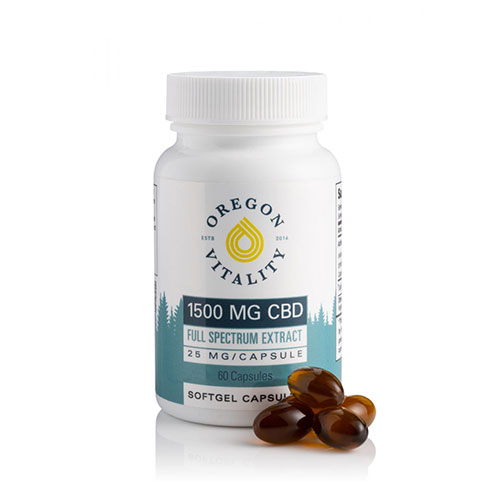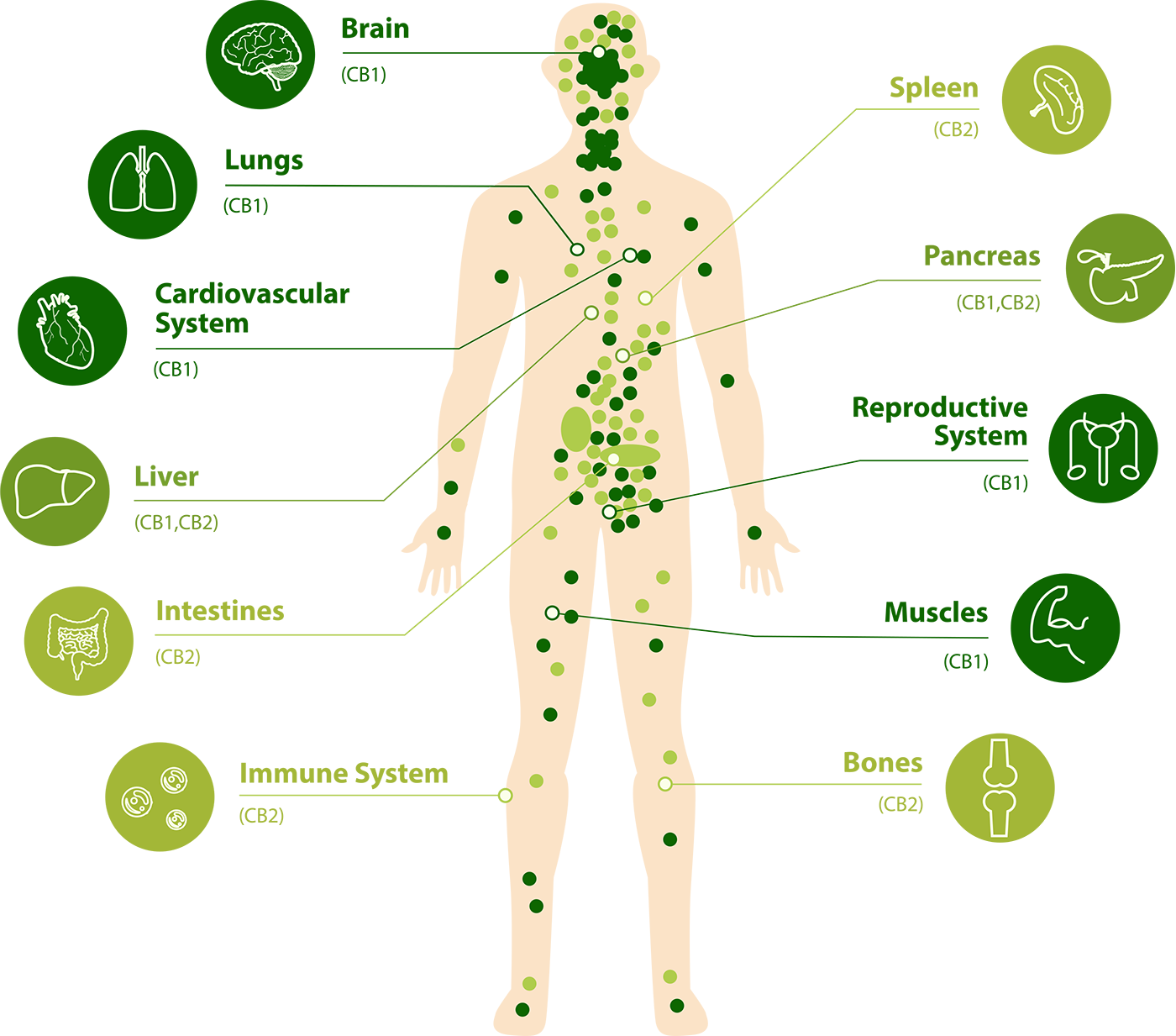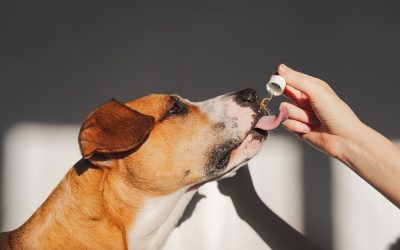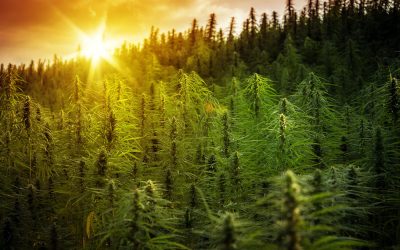Does THC make a difference?
Learn About Full Spectrum vs CBD Only:
Written by JC Riggs and Jennifer Hooson
Does THC make a difference? Learn about Full Spectrum vs CBD Only
Cannabidiol (CBD) products are taking off like crazy. Now that all 50 states have legalized industrial hemp, the industry is growing beyond compare. This means there are more products than ever before out on the market and new companies popping up left and right. A large part of what is fueling this skyrocketing progress for the buzz around CBD are all of the new and exciting benefits being discovered on a continuing basis.
With all of this going on, have you ever used, or considered using a CBD product? If so, do you know if you would want a Full Spectrum product or one that is a CBD only? Or are you like me, when I came to this industry, having no idea what the difference is?
To clear the air on this issue, let’s dissect the difference between THC containing products like Full Spectrum and Broad Spectrum, and THC Free products like CBD only made from CBD Hemp Isolate.
Full Spectrum
Full Spectrum extracts can contain upwards of 450 cannabinoids and varieties of terpenes, including tetrahydrocannabinol (THC) and CBD/CBDA
What does it mean when a product is listed as “Full Spectrum”? It means that the product is unrefined and raw, full of all the cannabinoids that were derived from the hemp crop. Full Spectrum extracts can contain upwards of 450 cannabinoids and varieties of terpenes, including tetrahydrocannabinol (THC) and CBD/CBDA. It is important to note that the THC levels in any product listed as a Hemp product have to be under 0.3% by weight per the 2018 United States Agriculture Improvement Act to be considered an “agricultural commodity” 9. This means that a CBD product that contains over 0.3% THC by weight has to be sold in a dispensary as a marijuana product, whereas a CBD product that is at or below 0.3% THC by weight can be sold in retail stores and online.
All in all this means that to be a Full Spectrum CBD product they have to have less than 0.3% THC. With a THC level this low, products like our Full Spectrum tinctures can have a slight intoxicating feel if taken at higher than recommended doses. We suggest shaking the item well before use as THC levels have been known to concentrate at the bottom of the bottle.
As for our full spectrum CBD salves, there is a very low chance of any significant amount of THC actually reaching your bloodstream. Based on the permeability of our skin and the molecular properties of THC it has a hard time passing through our skin’s outer layer (epidermis)10. However, our skin does have endocannabinoid receptors in the dermal layer. These receptors pick up any of the cannabinoids that do make it through our skin’s outer layer, often carried there via the terpenes in the full spectrum product. That is why topical products like our salves help in localized applications so well, but do not have a noteworthy amount of cannabinoids being sent systemically through the bloodstream.
Having all of the cannabinoids, even in small quantities, (like CBDA, CBG, CBN, THC, etc.) means that you are going to get the maximum benefit from the product. All of the receptors that are naturally occurring in your body’s endocannabinoid system are going to be engaged by the product you are using if you go the Full Spectrum route. Essentially, your endocannabinoid system (ENS) will be working at its optimal level.
But that is not all that Full Spectrum CBD products contain. They also have Terpenes, think fragrances, and Flavonoids, both of which have been shown to have therapeutic effects. Flavonoids have even been shown to have anti-inflammatory, anti-cancer, and neuroprotective properties11. Terpenes, which convert to terpenoids once they dry out, are also being studied for their therapeutic properties that include calming sensations, protection against oxidation of brain tissues, and brocodiliation7.
When all of the cannabinoids and other compounds are found together in a product, you get what is called the “entourage effect”. This means that all of the compounds work in synergy to help amplify the positive effects. Essentially, each compound is working together to get you the most benefit12.
Broad Spectrum
Broad Spectrum oil is a winterized oil that has had the fats/lipids and waxes removed and most of the THC stripped from it during the refining process and is still in an oil form.
However, this can be misleading because it is industry standard to say that broad spectrum products are THC free when they could actually contain trace amounts of THC.
Broad Spectrum products walk the fine line between Full Spectrum and CBD only products. Theoretically, they have such a low amount of THC that labs can not detect the amount in the product. However, this can be misleading because it is industry standard to say that Broad Spectrum products are THC free when they could actually contain trace amounts of THC still.
You see, all labs have to set their limits somewhere. For example, some labs set their limit of quantification (LOQ) at 0.2%. That means that the product can have 0.19% THC but will show as LOQ on the certificate of analysis (COA), making it appear to be THC-free, when in fact there is 0.19% THC content 1. This is why it is very important to choose your CBD products, no matter if they are Full or Broad Spectrum or CBD only, from a company that openly shares its COAs.
With all of that being said, Broad Spectrum products are very similar to Full Spectrum. They both have full cannabinoid, terpenes, and flavonoid profiles which means that they both have an entourage effect. The difference is that the Broad Spectrum product should have even lower levels of THC, so they could potentially have less entourage effect contribution from THC than a Full Spectrum product. It is up to you as the consumer to decide what level of THC you are comfortable with and then find a company that supplies the COA for their products and lists their labs LOQ for THC. If the percentage for the LOQ is low enough to make you feel comfortable then it is a good product choice for you. Just remember, technically a Full Spectrum product can have anywhere from 0.0001% to 0.3% THC, and so can a Broad Spectrum. Although, most companies will only claim a product is Broad Spectrum if its COA comes back with a delta 9-THC that is LOQ. It all just depends on what their lab’s LOQ is set at. And if you want to dive even deeper into the companies that you choose your products from, you can look for COA’s that are done by labs that are using multiple data sets from mass spectrometry (GC, HPLC and LCMS), which can also show optical purity testing and show the absence of any trace. This is what you would want to look for if you want 0.000000% THC, or what is called a CBD Isolate
CBD Isolate
If you are looking for a way to get the basic benefits of CBD and are concerned about THC, then go for a product made from CBD Isolate like one of our THC-free products.
CBD Isolate is essentially CBD in its purest activated powdered form. Everything else; all of the flavonoids, terpenes and other cannabinoids like THC are stripped away. CBD Isolate can be derived from hemp or cannabis plants. CBD on it’s own has a weaker bond with the receptors in our endocannabinoid system (CB1 and CB2)4. This means it is a good option for people who are new to CBD products and who may want the benefits of CBD but do not need these benefits in a medical way 4, 11.
If you are looking for a way to get the basic benefits of CBD and are concerned about THC, then go for a product made from CBD Isolate like one of our THC-free products. You will still get some amazing benefits, but these benefits do have a “ceiling” of effectiveness, meaning taking more won’t increase the effect once you reach a certain point12. Also, CBD-only products cause a biphasic response, meaning it cycles with peaks and dips in the day causing you to take it more often which is not ideal when being used medically 4, 8. This biphasic and ceiling response may be why some people feel that CBD doesn’t work for them, so keep it in mind if you decide to use these types of products instead of a Full Spectrum option.
Conclusion
Which product to use is totally up to you. It all ultimately depends on your feelings about THC. You can get great benefits from any of these types of CBD products.
If you do not mind there being a small amount of THC in your CBD products, then using Full or Broad Spectrum products may be the way to go for you. Using one of these products helps you to take advantage of the entourage effect to get the most out of your CBD and endocannabinoid system. These products will give you the maximum effect, which is dose-dependent so you can control the effect.
Otherwise you can always go with a product made from CBD isolate, such as our THC-Free tincture, so you know 100% that there is no THC entering your body. CBD isolate is fully activated and will interact with your endocannabinoid system, just not as extensively as a full or broad spectrum product would.
A note regarding concerns about drug testing:
There have been studies coming out which show that using a product that contains THC at any level does mean that you could potentially be at risk of failing a urine drug test2,5,6. This is dependent on your body’s way of metabolizing and storing the THC in the fat in your body. So, do take that into consideration when you are choosing your product. Also, it is important to note that some failed urine tests could be from a Nonsteroidal Anti Inflammatory Drug (NSAID) which seems to trigger a false positive for some people2.
There is more than one factor coming into play when you are thinking about whether or not a CBD product will cause you to fail a drug test. The main factor is dosage, or how much THC you are consuming. Consider this, when you get into the 1,000+ mg of CBD Full or Broad Spectrum, depending on the product you are using and the THC content, you could be taking over 1 mg a day. That THC will accumulate in your fat and then get metabolized over time. Depending on how quickly your body does this, and the timing of a drug test, the THC could show up on a drug screen up to 60 days out. It is also important to consider how often you are using CBD (daily vs a few times a week/month), your hydration levels, and your personal body chemistry. All of these come into play when thinking about the potential of a drug test and using CBD products3. For most people, and most urine tests, the amount of THC in a CBD product being under 0.3% means that they will generally be okay.
If drug testing is a major concern for you, or you are only interested in the benefits of CBD, then using a CBD Isolate product is a good choice. There is no need to be worried about passing a urine drug test, and you still get many of the amazing benefits that come from pure CBD. Just be aware that you may have to take a higher dose of the isolate since you will not be getting the entourage effect8.
Sources:
-
Black, PhD, Jake. “A Breakdown Of Confusing Hemp Extract Terminology”. Blog.Treehousehemp.Com, 2021, https://blog.treehousehemp.
com/hemp-extract-terminology. Accessed 2 July 2021. -
Caporuscio, J. (2020). Does CBD show up on a drug test?. Retrieved 20 May 2021, from https://www.medicalnewstoday.
com/articles/does-cbd-show-up- on-a-drug-test#cbd-and-drug- testing -
Downs, D. (2019). Can CBD show up on a drug test? | Leafly. Retrieved 14 June 2021, from https://www.leafly.com/news/
science-tech/does-cbd-show-up- drug-test -
Gallily, R., et al. (2015). Overcoming the bell-shaped dose-response of cannabidiol by using cannabis extract enriched in cannabidiol.
https://file.scirp.org/pdf/PP_2015021016351567.pd -
Gill, L. (2019). Can You Take CBD and Pass a Drug Test?. Retrieved 20 May 2021, from https://www.consumerreports.
org/cbd/can-you-take-cbd-and- pass-a-drug-test/ -
Johns Hopkins Medicine. (2019). Some CBD products may yield cannabis-positive urine drug tests. ScienceDaily. Retrieved May 20, 2021 from www.sciencedaily.com/releases/
2019/11/191104141650.htm -
Johnson, J. (2020). What are terpenes?. Retrieved 20 May 2021, from https://www.medicalnewstoday.
com/articles/what-are- terpenes#what-they-are -
Lee, M. (2015). Single Compound vs. Whole Plant CBD. Retrieved 18 November 2021, from https://www.projectcbd.org/
science/pure-cbd-better -
Osvaldo Marinotti & Miles Sarill (2020) Differentiating Full-Spectrum Hemp Extracts from CBD Isolates: Implications for Policy, Safety and Science, Journal of Dietary Supplements, 17:5, 517-526, DOI: 10.1080/19390211.2020.1776806
- Painter, J., Burek, C., & Vialpando, M. (2021). Transdermal Delivery. Recent Advances in the Science of Cannabis, 193-214.
-
Thompson, R., 2021. What Is Full-Spectrum CBD? Plus, 7 Best Products to Try. [online] Healthline. Available at: <https://www.healthline.com/
health/full-spectrum-cbd> [Accessed 28 April 2021]. -
Russo, E. B. (2019). The case for the entourage effect and conventional breeding of clinical cannabis: No “strain,” no gain.https://www.ncbi.nlm.nih.
gov/pmc/articles/PMC6334252/
You might also be interested in
How to Dose CBD for Pets
How to Dose CBD for PetsWritten by JC Riggs and Jennifer HoosonAre you considering using a CBD product like our Full Spectrum Tinctures or Pure CBD...
Huge Discounts for Heroes: Oregon Vitality’s Heroes Program
Written by Jennifer Hooson | Reviewed by JC Riggs Who is a hero to you? What does it mean to be a hero? For us, heroes are those who look each day...
3 Ways Hemp Helps The Environment Heal
Hemp (Cannabis sp.) is known for its utility when it comes to recreational/commercial products, specifically CBD, but did you know that it is also...
